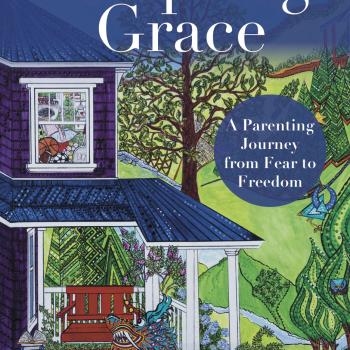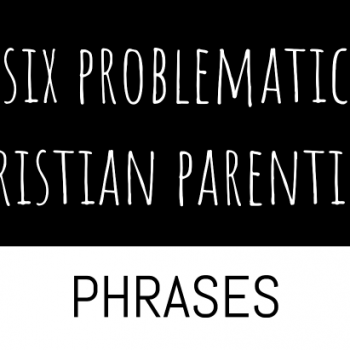
The world is abuzz with the release of The Shack movie, based on the novel by W. Paul Young. I want to reflect briefly on the importance of The Shack as we consider the task of parenting children in ways alternative to the moralism, legalism and harshness of so much traditional Christian parenting.
*Spoiler Alert*
To begin, the backstory of The Shack is Paul Young’s own life. No, he did not literally have a child who was abducted, abused and murdered. But as a missionary kid on the foreign field, he did experience severe beatings at the hands of a broken and raging father, who also happened to be a missionary. Paul also suffered repeated sexual abuse by the indigenous people and at the hands of other boys in a missionary boarding school.
The movie captures glimpses into Paul’s early beatings through flashbacks to the protagonist’s childhood. There we see Mackenzie’s father—an elder in the church and an alcoholic—who regularly beats his wife and his son. He uses the belt as a whip on the boy while forcing him to recite Scriptures about obeying one’s parents.
This marriage of violent punishment to Christian religion highlights a common problem. Fundamentalism holds to a retributive theology—an angry God who demands punishment and can only be appeased through violence (whether in hell or on the cross). That belief system of so-called “redemptive violence” will inevitably trickle down into our parenting. After all, as parents we represent God to our children. If that God has anger issues and needs to punish sin, is that not our task also?
“Spare the rod and spoiled child” is the great biblical mandate for corporal punishment – “hurts me more than it does you.” In some cases, ministers have misinterpreted and misapplied Jesus’ words from the King James Bible, “suffer [allow] the children” as if he meant “cause the children to suffer.” And suffer they did. Nor has this suffering been strictly physical. The supposedly “tough love” that controls, shames and excludes wayward child is at least as violent to a child’s psyche as the leather belt.
These experiences form the backdrop for the toxic image of God that The Shack seeks to expose and replace with a more beautiful and more accurate portrayal of God. Paul Young does this in several ways.
Most importantly, The Shack reveals God as love only. The corrections of God are only and always restorative. The judgements of God are pure mercy. Even the painful truth is revealed only for our healing. This depiction of God is reflected in Hebrews 12, where the author insists that whatever discipline we receive from God is always parental love in action. Nothing else. Nothing that harms. Nothing that maims or shames or blames. Only love that empowers God’s children and strengthens “weak limbs.”
When Mack questions whether God ever gets angry, Papa concedes, “What parent doesn’t?” But when Mack attempts to connect the dots to wrath, Papa acts as if she doesn’t even understand. “You lost me there.” Mack presses, projecting the need to punish sin onto Papa. Again, resistance. God doesn’t need to punish anyone. “Sin is its own punishment.” This is confirmed later when Mack infers that this approach lets the wicked, the rapist, the murderer get away with their sin. Again, there is pushback. No one gets away with anything. There are terrible consequences for our actions, but God is forever with us, weaving grace into our stories to redeem even the worst situations for our good.
I have tried to make this shift as a parent through the years. I remember the last time I threatened to hit one of my sons. He had been hitting his brother repeatedly, taking it upon himself to be the hand of Justice, misquoting the Golden Rule as, “I’m just treating him how he wants to be treated.” I heard myself say, “Stop hitting your brother or I will hit you!” I recognized how I was reinforcing retribution in my son by example. I knew that whatever I sowed in anger or violence would be reaped in my son accordingly.
Then in my heart, I believe I heard the Holy Spirit say, “I will show you a better way.” Sow mercy and you will reap mercy. Without indoctrinating my boys, I’m pleased that over the years, whatever my failings, I see nonviolent mercy in the foundations of my boy’s personal ethics and real practice. Happily, they know this mercy is rooted in Jesus, and that it contradicts the idolatrous punisher God.
Brad Jersak is a husband and father of 3. He’s an ex-pastor, theologian and author of two children’s books, Children, Can You Hear Me? and Jesus Showed Us! available at www.bradjersak.com. He also edits the CWR magazine where Cindy often appears as a columnist.












